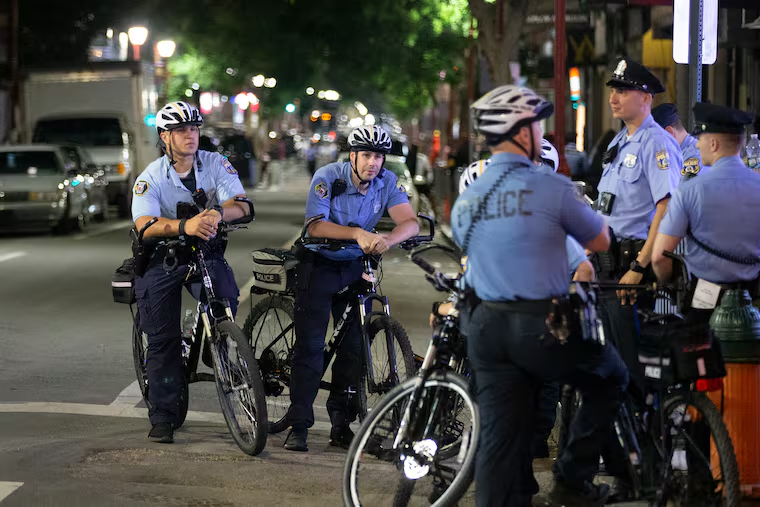How short staffing across Philadelphia city government affects you
Philadelphia is down some 4,000 workers, creating problems and frustrations in every corner of city government.

Across Philadelphia city government, about 4,000 positions are currently unfilled, creating obstacles for city workers trying to deliver even basic services.
An Inquirer report found that a rash of retirements and resignations during the pandemic resulted in about 1 in 7 municipal jobs now sitting vacant. The city has been unable to hire employees as quickly as it’s lost them, and the city is so far not recovering as quickly as some other municipalities.
Advocates long ago sounded the alarm over thinning ranks of police officers, prison guards, and prosecutors, but the losses touch every corner of city government. Here are five ways that short-staffing issues affect Philadelphia residents:
1. Police response times are affected.
Shortages in the Police Department have been well-documented. The force, authorized to have 6,380 officers and nearly 1,000 more civilian staff, has 400 vacancies and hundreds more officers off-duty on injury claims. The department saw 195 uniformed officers retire last year, double from five years prior.
Police Commissioner Danielle Outlaw has repeatedly said the department is at its lowest staffing levels in years, hampering its ability to fight crime because it can’t replicate the work of a force that was at least 10% larger several years ago.
» READ MORE: Philadelphia police response times have gotten 4 minutes longer, about 20% worse
That’s a problem in a city that has, over the past two years, seen its highest rates of gun violence in generations. Reports of other crimes, including carjackings and auto thefts, have skyrocketed since the spring of 2020. In the meantime, average police response times jumped 20% in 2021 compared to the year before, according to an Inquirer analysis of department records.
2. The city doesn’t have a full complement of paramedics.
The Fire Department has also reached critically low staffing levels.
The department is authorized to have more than 3,400 employees, but currently has about 700 vacancies, a department spokesperson said. Most of those are firefighters, EMTs, and paramedics. Until last week, the city hadn’t graduated a new class of firefighters or paramedics in more than a year and a half.
The department has struggled for years to recruit paramedics, specifically. Mike Bresnan, president of the International Association of Fire Fighters Local 22, said in some cases, firefighters who double as medics are filling gaps where paramedics once worked even though paramedics typically undergo more training.
3. Fewer people are inspecting buildings.
About a third of the city’s inspectors left between mid-2019 and the start of this year — and they resigned or retired at a rate three times higher than the department as a whole. The department didn’t hire a single new inspector last year, The Inquirer reported in May.
» READ MORE: A third of Philly’s building inspectors have quit since 2019. Critics say that threatens public safety.
The exodus, combined with a construction boom, has some concerned about safety or worried a catastrophe could be looming. Observers fear inspectors are overworked, and advocates for vulnerable tenants said they noticed staff shortages at L&I getting worse.
4. Libraries and parks have reduced services and hours.
Advocates for Philadelphia’s libraries, parks, and recreation centers say they are at “completely unacceptable” staffing levels, making it challenging just to open some facilities on a regular basis.
In May 2021, the city cleared libraries to fully reopen after the pandemic, but many are still open only a few days a week for four hours. Some can only open for “materials pickup,” meaning there aren’t enough staff members to open the doors entirely, but people can pick up books or other items they reserved online.
Kelly Richards, the president and director of the library system, told City Council in May the system is short hundreds of workers, with a third of positions vacant in some areas of the city. He said it could take a year or more to fill them.
In Parks and Recreation, some employees say they struggle to take even one day off, knowing that if they do, the center where they work might not be able to open. Nearly 50 recreation centers in Philadelphia have just one full-time worker.
The department already has more than 150 vacancies, and it must go on another hiring spree. The city intends to open some recreation centers on weekends beginning this fall, which will require another 500 full-time employees.
5. More taxpayer dollars are spent, but not on service improvements.
Reliance on overtime pay to cover work shifts is increasing, meaning more taxpayer dollars are being used to deliver city services.
Philadelphia spent $152.7 million on overtime through the third quarter of the last fiscal year, according to a recent report by a state oversight board. That’s the highest amount ever recorded by the third quarter and 7.4% higher than at the same point last year.
The steepest increases were in police, prisons, and Parks and Recreation — each of which have acute staffing shortages.
The Philadelphia Inquirer is one of more than 20 news organizations producing Broke in Philly, a collaborative reporting project on solutions to poverty and the city’s push toward economic justice. See all of our reporting at brokeinphilly.org.